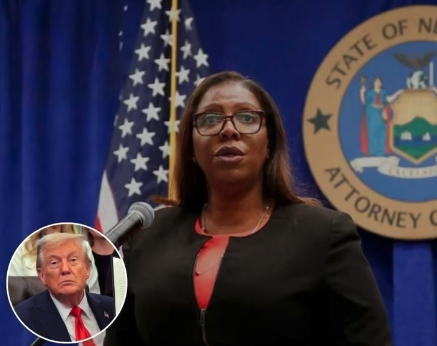Letitia James Indicted on Mortgage Fraud — Political and Legal Firestorm Erupts at DOJ
In a development that has sent shockwaves through political and legal circles alike, New York Attorney General Letitia “Letita” James has been formally indicted by a federal grand jury on charges of mortgage fraud. The indictment, unsealed earlier today, alleges that James knowingly falsified key details on mortgage documents tied to one of her Virginia properties in order to obtain more favorable loan terms.
According to a statement from the Department of Justice, James faces charges of making false statements to a financial institution. Prosecutors allege she misrepresented her primary residence status on loan applications, falsely claiming that a Virginia property was her main home when, in reality, it was purchased as an investment. This alleged misrepresentation, officials say, influenced the lender’s decision-making process and violated federal banking laws.
The indictment represents the most dramatic turn yet in a long-running investigation into James’s real estate holdings and financial disclosures. Over the past year, multiple federal probes have examined her property records, scrutinized her loan applications, and subpoenaed financial documents related to the Virginia purchase. Sources familiar with the matter say the grand jury reviewed a broad range of evidence — from internal bank communications and property appraisals to testimony from mortgage officers — before returning the indictment.
James’s legal team responded swiftly and forcefully to the charges, issuing an emphatic denial. Her attorneys maintain that all paperwork was filed in good faith and that any irregularities in address listings or documentation were merely clerical errors with no material impact on loan approval. They further insist that no lender relied on the disputed information in granting credit, framing the allegations as an overreach rooted more in politics than in fact. Investigators, however, have previously signaled skepticism toward this defense.
The political implications of the indictment are immense. James, a high-profile Democrat and a frequent critic of Republican leadership, rose to national prominence for spearheading the civil fraud case against former President Donald Trump. Her indictment has already triggered fierce partisan reactions, with her supporters denouncing the move as politically motivated retribution. Critics of the Department of Justice, including several former Trump officials, have openly advocated for criminal charges against James — even as, until recently, prosecutors had not found sufficient evidence of intent to deceive.
Behind the scenes, several figures reportedly played pivotal roles in advancing the case. Ed Martin, who heads the DOJ’s “Weaponization Working Group,” and Bill Pulte, director of the Federal Housing Finance Agency, are said to have repeatedly lobbied for stronger action. Sources claim that the U.S. Attorney for the Eastern District of Virginia initially resisted moving forward but was ultimately pressured to step aside, paving the way for a more compliant successor to proceed with the indictment.
Now, federal prosecutors must clear a high legal bar — proving beyond a reasonable doubt that James knowingly and intentionally misled a financial institution. Previous internal assessments reportedly concluded that clear evidence of intent was lacking, though supporters of the indictment insist that newly obtained witness statements and documentation make for a more compelling case.
Even with the charges in place, James retains significant protections as a sitting state attorney general. Legal experts predict that the case could stretch on for years, bogged down by procedural challenges, jurisdictional disputes, and appeals. The indictment alone does not force her from office, and she is expected to continue fulfilling her official duties — or, at minimum, mount legal efforts to temporarily suspend proceedings — while she fights the allegations.
Observers from both parties agree that the case carries historic weight. A conviction would mark one of the most consequential prosecutions ever brought against a state attorney general, while an acquittal would likely unleash intense backlash — reigniting debates over the politicization of the justice system and the dangers of criminalizing partisan rivalries.
For now, Letitia James stands formally indicted — a powerful figure at the center of a storm that blurs the line between law and politics. The legal battle ahead promises to be long, bruising, and deeply consequential for both her career and the broader integrity of American institutions.

